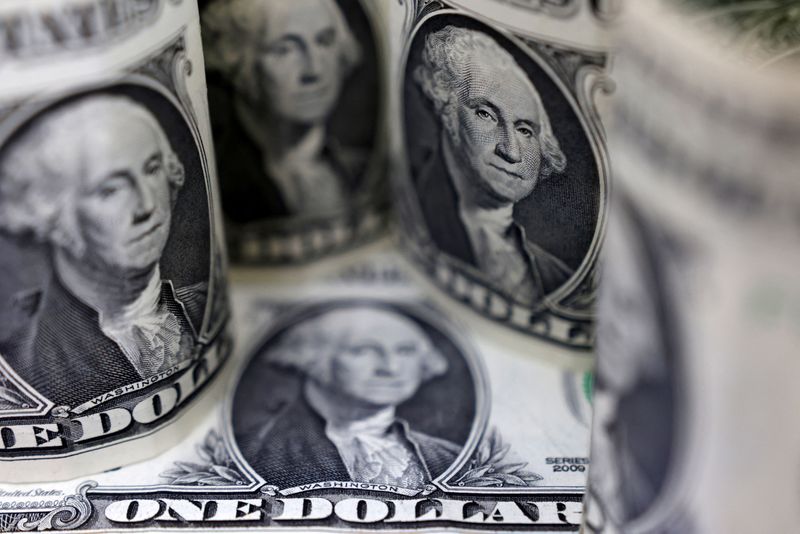By Chuck Mikolajczak
NEW YORK (Reuters) -The dollar rose on Friday and is set to fall for a two-week period after a global cyber outage that hit banks, airlines and broadcasters unnerved investors, although volatility in currency markets remained largely under control.
A software update from global cybersecurity company CrowdStrike (NASDAQ:) crippled industries from travel to finance before services came back online after hours of disruptions, highlighting the risks of a global shift to digital, interconnected technologies .
The currency was on track for its second consecutive daily gain, the first in two weeks, to put the dollar on track for its first weekly gain in three weeks, recovering from recent U.S. economic data and concerns about technology outages.
“It may be a reflection of the selling pressure earlier this week, and at the end of last week, which seems rather exaggerated, especially considering that US economic growth remains robust, even as the Fed is poised to cut spending .” In September, easing will still be relatively synchronized across G10 central banks,” said Michael Brown, market analyst at Pepperstone in London.
“Of course, the earlier technical issues also triggered a flight to safety, prompting hasty dollar buying earlier in the day, with that momentum continuing into the afternoon session.”
The dollar index, which measures the greenback against a basket of currencies, rose 0.24% at 104.39 and was up 0.3% for the week.
The Federal Reserve is expected to make its next policy announcement in late July. Markets expect only a slim chance of a cut of at least 25 basis points (bps), while they almost fully priced in a cut at the September meeting, according to CME’s FedWatch Tool.
However, the yen was higher against the dollar this week, following suspected official purchases last week from Japanese authorities, and another suspected intervention from the Bank of Japan (BOJ) earlier this week.
Against the yen, the dollar strengthened 0.07% on the session at 157.48, swinging between gains and losses on the session, after data showed inflation in Japan picked up for a second month. The dollar fell 0.24% against the Japanese currency this week.
The yen has fallen more than 10% against the dollar this year, largely due to the wide interest rate differential between the US and Japan, and hit a 38-year low early this month, prompting action from Tokyo.
The euro fell 0.16% to $1.0878 and was on the verge of a two-week winning streak, a day after the European Central Bank kept interest rates steady as widely expected and gave no insight into the next move.

Sterling weakened 0.25% to $1.2909, retreating further from a one-year high earlier this week after data showed British retail sales fell more than expected in June as cooler weather deterred shoppers. This week the pound is down 0.6% and is on the verge of a three-week winning streak.
In cryptocurrencies, bitcoin gained 4.86% to $66,924.00. rose 2.79% to $3,508.90.


